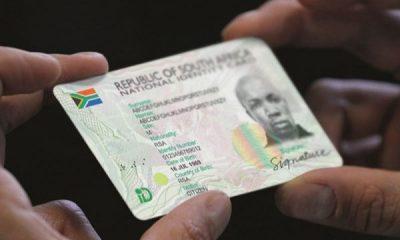News
Gauteng High Court Ruling Tightens Rules On Contingency Fees For Lawyers

The Gauteng High Court in Pretoria has handed down a ruling that could reshape how lawyers handle “no win, no fee” agreements a move seen as protecting clients but also raising fears about access to justice for low-income South Africans.
A Legal Wake-Up Call For Practitioners
In a unanimous decision delivered by Judge Anthony Millar and two colleagues, the court found that contingency fee agreements where lawyers only get paid if their client wins must strictly comply with the Contingency Fees Act. The ruling makes it clear that attorneys cannot charge more than 25% of the total award, closing a loophole that some firms had used to recover larger fees.
Judge Millar noted that the law was never designed to give lawyers an “alternative preferential method” of determining their pay but rather to strike a fair balance between compensating risk and safeguarding clients. “Normal fees remain the standard by which the reasonableness of a practitioner’s fee is determined,” he said.
The Case That Sparked The Judgment
The ruling stemmed from a case involving Fred de Bod, who entered into a contingency fee agreement with his lawyer. The contract promised either double the lawyer’s standard rate or 25% of the client’s payout whichever was lower. The agreement was ultimately declared invalid for not complying with the Act’s strict provisions.
The judges found that the lawyer’s approach leaned more toward financial gain than client protection, reinforcing the need for stricter oversight.
Lawyers Push Back Over “Access To Justice” Concerns
Attorney Gert Nel, who plans to appeal the decision, warned that the ruling could have a chilling effect on access to justice, especially for poorer clients who rely on contingency-based representation.
“These agreements exist so that people without financial means can still take their cases to court,” Nel explained. “If this ruling stands, it may effectively take the keys to the court out of the hands of the poorest of the poor.”
Nel added that many lawyers take on high-risk cases without upfront payment, covering costs themselves until the case is resolved. The 25% cap, he argues, may no longer make such arrangements sustainable.
Public Reaction And Broader Impact
The ruling has drawn mixed reactions from the public and legal circles. While some South Africans welcomed the move as a victory for transparency and fairness, others expressed concern on social media that it could discourage lawyers from representing victims in Road Accident Fund (RAF) and other civil claims.
Legal reform advocates say the decision reinforces the principle that justice should not become a profit-driven enterprise. Yet for many in the legal community, it raises a familiar question: how can the courts ensure fairness without cutting off access to justice?
A Turning Point For South Africa’s Legal Landscape
This ruling underscores an ongoing tension in South African law balancing client protection with the economic realities of running a legal practice. With the matter likely heading for appeal, the debate around contingency fees is far from over.
If the appeal fails, it could mark a turning point for how legal practitioners operate, particularly in high-volume personal injury and RAF cases. But for now, the message from the bench is clear: lawyers must put client protection first even when it costs them.
{Source:IOL}
Follow Joburg ETC on Facebook, Twitter , TikTok and Instagram
For more News in Johannesburg, visit joburgetc.com


























